Following The Film Stage’s collective top 50 films of 2024, as part of our year-end coverage, our contributors are sharing their personal top 10 lists.
Reflecting on the past year in film, I find myself at an interesting crossroads where my alignment with the consensus is back off the axis. After 2022 left me feeling a bit out in the weeds regarding cinema culture, last year I was more in tune with the overall vibes––several favorites picked up Academy Awards, including Best Picture. This year is similar to 2022 for me, in that I won’t be surprised if not a single one of my top ten even gets a nomination.
But that doesn’t mean it was a poor year in my eyes; quite the contrary. From massive big swings by long-dormant auteurs or those recently bursting on the scene, to quiet dramas with volumes to say, to a bevy of formally riveting genre features that harken back to the golden age of ’90s programmers, 2024 was packed with all manner of my favorite slices of cinema––subversive westerns, complex explorations of gender identity, riveting courtroom thrillers, and pulse-pounding crime dramas.
To see my full ranking of 2024 releases, you can check out my list on Letterboxd. There, you’ll also find my ranked list of all the non-2024 films that I saw for the first time this year. That selection is highlighted by Johnny Guitar, The Man from Laramie, Bend of the River, Open Range, First Blood, The Great Waldo Pepper, and Breezy.
For now, these are my top ten films released in the past year, starting with a handful of honorable mentions.
Honorable mentions: Oh, Canada, Hard Truths, Queer, Good One, Love Lies Bleeding, A Real Pain, Carry-On, The Brutalist
10. Hit Man (Richard Linklater)

This puppy is really cooking on all cylinders. Richard Linklater and Glen Powell are able to navigate such a tricky tone, mixing screwball comedy antics with sizzling romance and anxiety-shredding crime that teeters into full-blown neo-noir. You can point to things like Out of Sight and Grosse Pointe Blank as touchstones for certain elements, but Hit Man ultimately accomplishes something entirely of its own invention. With a banner year containing the box-office tail of Anyone But You and the surprisingly solid summer blockbuster Twisters, Hit Man launched Glen Powell into full-blown Movie Star mode in a way we simply don’t see anymore. You can’t take your eyes off this guy, especially when he’s sharing utterly sizzling chemistry with Adria Arjona.
9. Trap (M. Night Shyamalan)
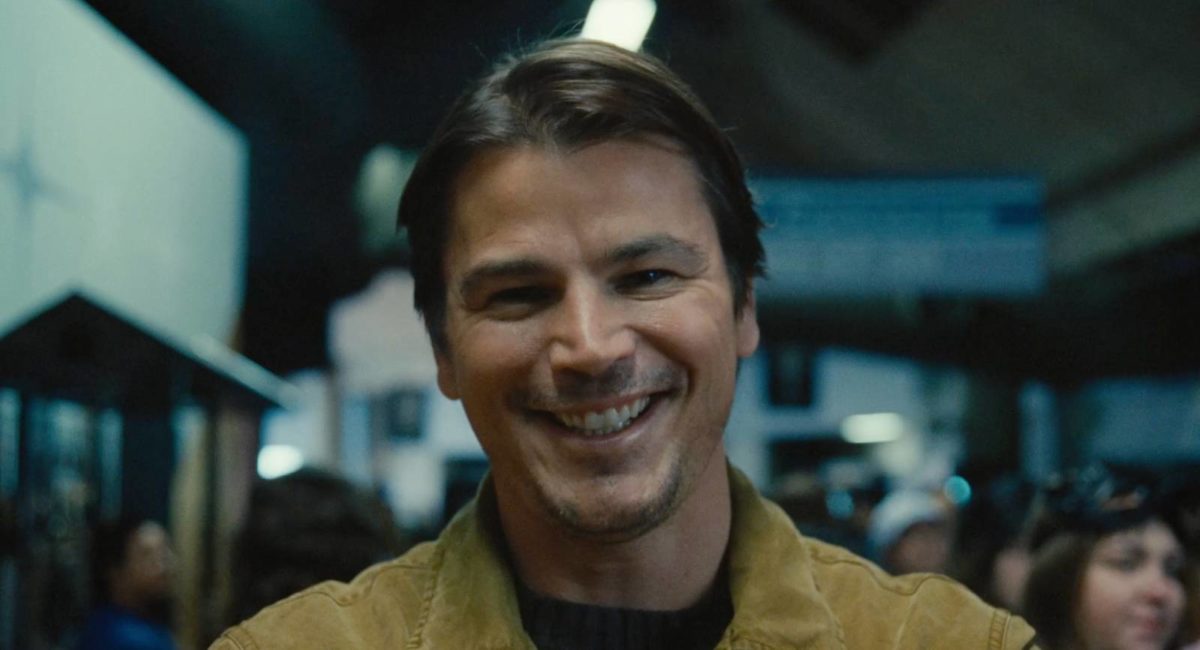
Perspective is the primary focus of Trap, as everything we see is intentionally designed to have us interrogate the lens through which we’re seeing it. M. Night Shyamalan has always been fascinated by the idea of perspective and here he’s fully leaning into cinema as visceral, interior experience, taking us into the mind of a killer while delivering roller coaster levels of excitement. But Trap is not without its deeper dimensions. The surface is all thrills and chills, but slowly in his script Shyamalan also interweaves this rumination on identity. Who is Cooper and who is The Butcher? In the eyes of the police, they are one in the same, but for Cooper these are two meticulously constructed identities that were never supposed to meet. Yet here they are, both under the same roof. A family man with his daughter trying to show her a good time on the most exciting day of her life. A ruthless killer desperate to find any means of escape. Who will take precedence? Josh Hartnett brings us inside that internal dilemma with the best performance of his career.
8. Evil Does Not Exist (Ryusuke Hamaguchi)

The world must have been offered up to Ryusuke Hamaguchi after the success of Drive My Car, and I love that for his follow-up he stayed completely true to himself and made this unbelievably powerful fable about conservation and mankind’s destructive relationship with nature. We’re all visitors, we’re all forces that disrupt and destroy even when we mean well. When nature revolts against that, it’s not from malice or evil. It’s simply what it is. The law of the land. With Yoshio Kitagawa’s exquisite cinematography and Eiko Ishibashi’s rapturous score, Evil Does Not Exist is yet another delicate, gentle picture from Hamaguchi that contains tidal waves of emotion underneath the surface waiting to crack through and overpower you.
7. The Order (Justin Kurzel)
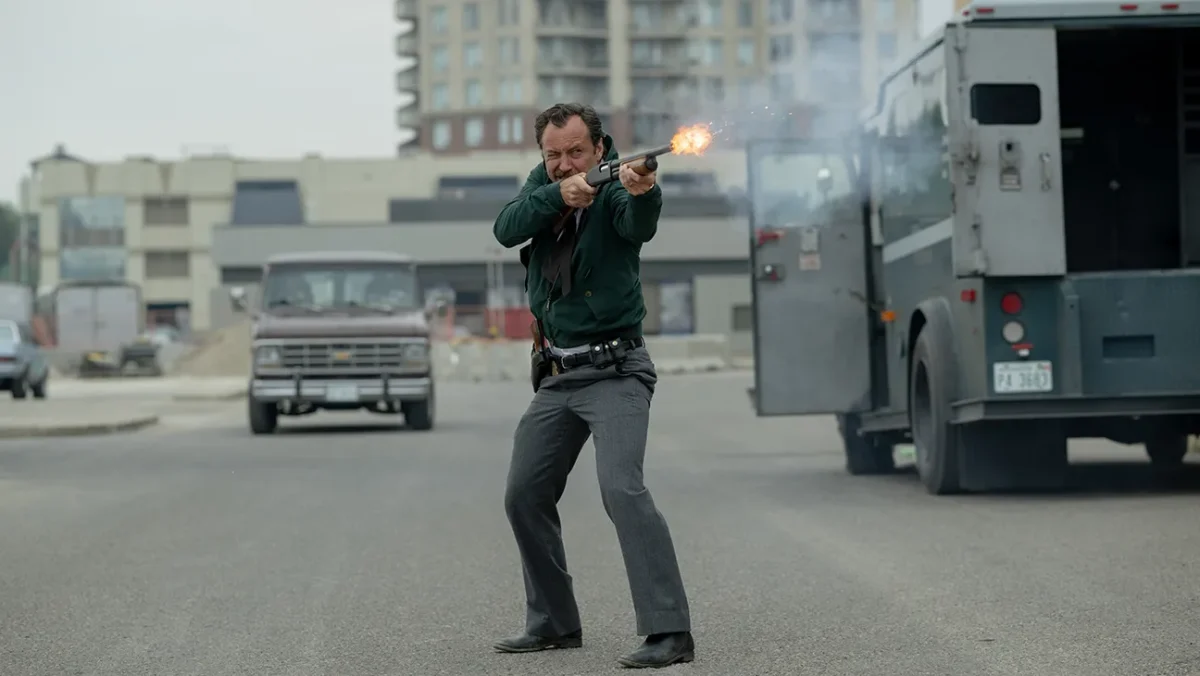
The Order may be set in the 1980s Pacific Northwest, but it breathes with all the grit of a classic ’70s New York crime thriller. Up until now, Justin Kurzel has generally remained in his Australian homeland, particularly for his pictures taking on the horrors of real-life violence, but here he brings a muscular approach to this rip-roaring cops and robbers tale of an FBI agent who goes after a squad of renegade neo-nazis breaking off from their sect to take things to the next level. Jude Law sports a wooly mammoth above his lip while giving his best performance in years (full Gene Hackman mode), and Kurzel provides the environment with rich texture, utilizing his gift for overhead establishing shots to really allow you to breathe in this crisp, grey, woodsy air that gets stuck in your chest as bullets start flying and no one feels safe. This is as good as crime thrillers get, a welcome throwback with rich characterization, dimensional turmoil within both the good guys and the bad guys, and properly breakneck set pieces that get the adrenaline going overtime.
6. I Saw the TV Glow (Jane Schoenbrun)

I Saw the TV Glow taps into those ephemeral moments where something allows you to feel understood, if only ever so briefly. Those moments where you can be transported into a deeper connection with yourself thanks to a connection with a show or film (or music or whatever). But it’s not all beautiful. Jane Schoenbrun understands that with this sensation of finally, oh my god finally, feeling seen comes the lurking reckoning with the fact that it’s not real. That home you found is inside a screen, it’s not around you. In those moments, crashing back to reality, you’ve never felt more alone. Parasocial relationships get a lot of play in the discourse these days, but Schoenbrun across their first two films has masterfully navigated this concept of paramedial relationships where a piece of media is more real to us than reality. There can be beauty and terror in that in equal measure, existing simultaneously. I Saw the TV Glow has so many layers baked within that feel like they’re speaking specifically to the trans experience and the autistic experience, things that deeply resonated for me, but I think there’s a ton here that will resonate with anyone who’s ever felt like an outsider.
5. Juror #2 (Clint Eastwood)
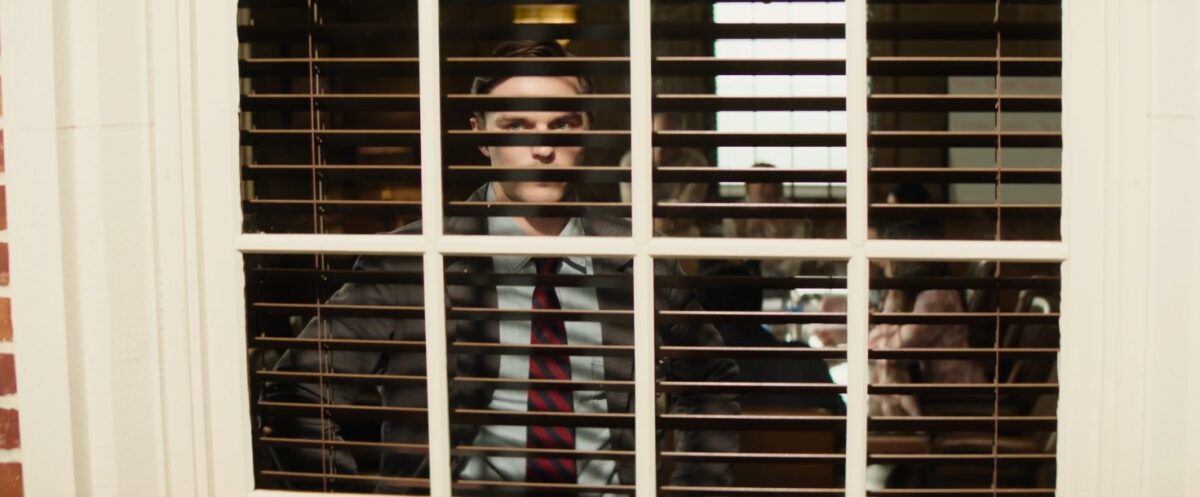
For much of his directorial career, Clint Eastwood has posed the question “What does it mean to be a good person, particularly when you’ve done something wrong?” Juror #2 is one of his most direct confrontations with this theme, taking us inside our judicial system as a man has to face the dilemma of letting someone else take the fall for a crime he committed. It’s a fascinating subversion of the typical courtroom drama structure, in which we usually either don’t know the truth and are in suspense waiting for it to be revealed, or we know the truth but the suspense is in which lawyer will make the most compelling case for the jury to have them declare a verdict. Here, the tension all rests in one man and what he’ll do. Eastwood and screenwriter Jonathan Abrams masterfully place us into this man’s shoes across Juror #2 making his moral dilemma one that we ourselves must confront: in the same position, what would we do? When it’s all on the line, are you good enough to tell the truth? The most unnerving result is the reality that we can never really know.
4. A Different Man (Aaron Schimberg)
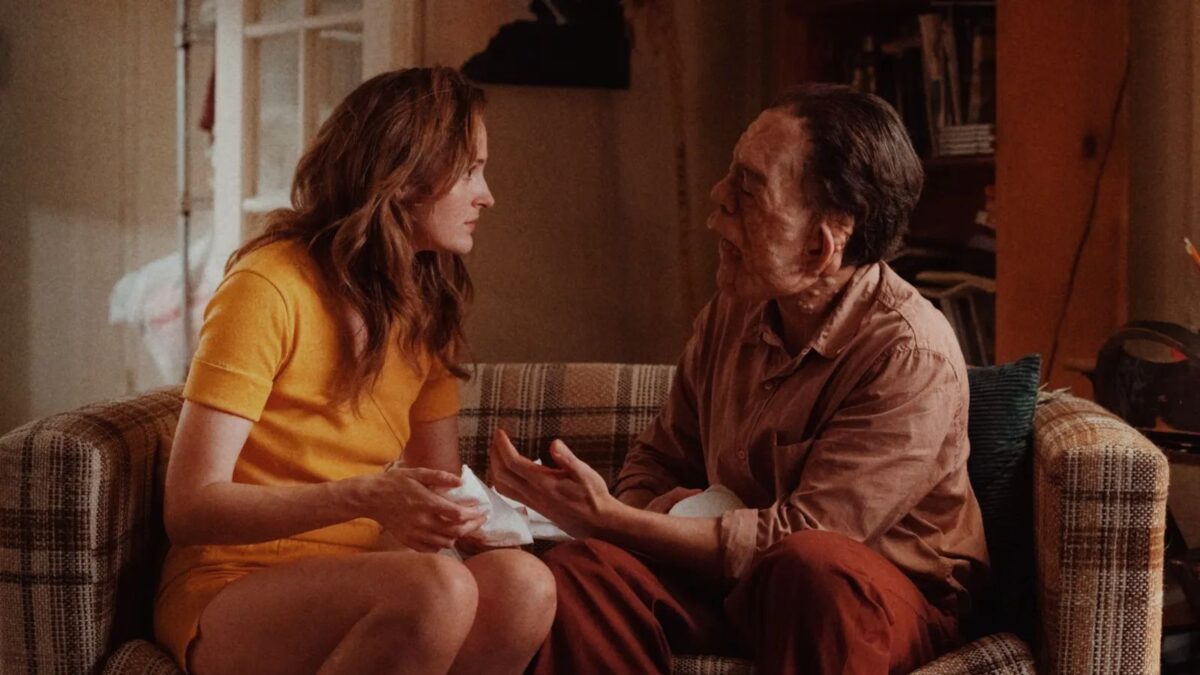
A Different Man sees Sebastian Stan giving the performance of his career as Edward, an actor with neurofibromatosis who undergoes a radical facial transformation to try and enhance his life. Only the more time we spend with the man, the more we see how this surface procedure can’t alter who he is deep down. Aaron Schimberg presents a multi-faceted look at not only disability but identity at large, how these superficial alterations mean nothing when we don’t actualize change from within, and how much of our lives are rooted in perception—our perception of others, our perception of self, and our assumptions about how other people are perceiving us.
3. Horizon: An American Saga – Chapter 1 (Kevin Costner)

As long as you understand and accept what Horizon is (which, hey, it’s right there on the tin—this is a three-hour Kevin Costner western with Chapter 1 in the title), you’re getting what was promised to you. The storytelling may be episodic, but the scale of this baby is more cinematic than anything else we saw this year. Costner is steeped in a deep appreciation of the western genre, and he utilizes that to craft grand themes on American exceptionalism, the rot of evil blood-soaked into the soil of this country by white men, and how capitalism ultimately drives everything. While capturing the utter majesty of this time and place (beautifully shooting in some of the few locations left in this country where you can capture environments like this), with low-angle shots that frame characters within the vastness of the blue skies above them, Costner is also consistently deconstructing the myths of the American West, of manifest destiny and the idea that these people had a claim to anything. He shows us, and them, that this promised land of profit and glory never even existed at all.
2. Here (Robert Zemeckis)

Coming from the team behind Forrest Gump, I was genuinely surprised by how frank and unsentimental I found Here to be, consistently finding the transcendent in the ordinary but with a certain bitterness laced throughout. In this millennia-spanning tapestry, we see these universal ideas that encompass life for everyone: love, loss, aspirations, regret, connection, and separation. What happens to our lives as we sit idly by, the consumption of worry over every little thing grinding us down to where suddenly we’re old and we’ve removed ourselves from our passions and the people we love. I found myself overwhelmed by the enormity of Here’s observations on life—what connects us and what separates us, from each other but especially from ourselves. Those regrets that hang over us for years, that build resentment towards others, and the enduring hope that we might get over them—that we might finally listen to our hearts and put aside these things and embrace one another. It’s a combination of simple stories that ultimately adds up to this mountainous observation of life.
1. Challengers (Luca Guadagnino)
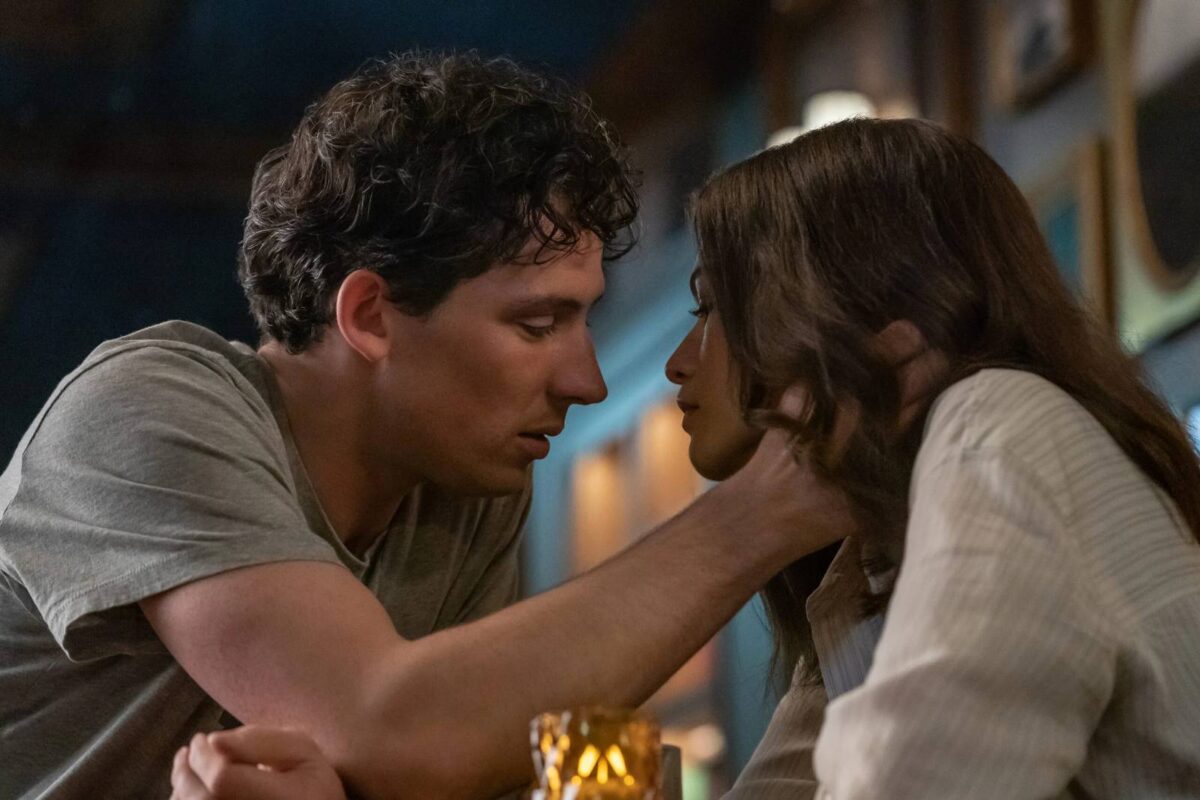
Challengers is all about status and power. Who has it, and how they wield it. Who doesn’t have it, and what they’ll do to acquire it. How each of these circumstances impacts a person’s soul, the way they see themselves, and the way they treat others. Sex, tennis, marriage. It’s all competition. It’s all part of the game. With an adrenaline-pumping score from Trent Reznor and Atticus Ross, plus mesmerizing cinematography from this year’s DP MVP Sayombhu Mukdeeprom, Luca Guadagnino, and screenwriter Justin Kuritzkes push Zendaya, Mike Faist, and a best-in-show Josh O’Connor to the limit time and again, bringing them back around to the thing they love the most: competition.
